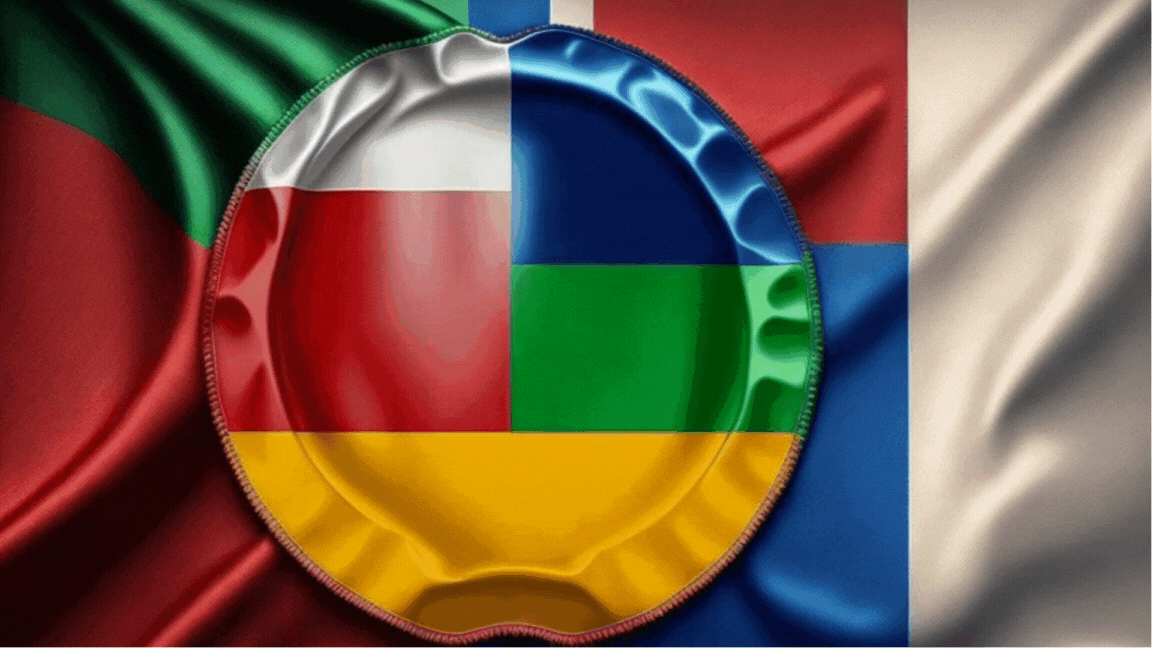The Latin American Report # 581

Well, interesting and certainly murky developments for understanding in—or about—Venezuela. It all starts from the tough rhetoric of the final days of the Trump administration, doubling the reward for information leading to the arrest and/or conviction of Nicolás Maduro for allegedly leading the so-called Cartel of the Suns, and apparently leaving open the possibility for any (violent) approach to quell the drug trafficking problem—again, allegedly—attached to it. Even outlets like the New York Times are producing pieces like this one, titled "Is the Trump Administration Preparing for a Military Confrontation with Venezuela?".
Allied leaders have come out in defense of Maduro, who called upon thousands of volunteers, including reservists, militia members, and citizens, to enlist and be ready to respond to a potential aggression. "What they're threatening to do against Venezuela -- regime change, a military terrorist attack -- is immoral, criminal and illegal," he said. "We don't know what might happen, but we must prepare and keep resisting," said a 66-year-old auditor to AFP.
Then, connected to this development are some unusual statements from Maduro last Friday, in which he quoted a president from the first decade of the 20th century who also faced a situation of external political pressure. The point here is that the quote speaks of opening the prisons to free political prisoners and of personal sacrifice—which includes stepping aside from power—to get the country out of a moment of intense political tension. In his famous 1902 proclamation, directed against the tripartite naval blockade by the United Kingdom, Germany, and Italy, Cipriano Castro stated the following:
I have no memory for anything ungrateful that may reside in the past. Everything hostile to my purposes, everything that could have left a mark of pain in my heart, is erased from my thoughts as a politician and a warrior. Before me remains only the luminous vision of the Homeland, as Bolívar dreamed it, as I love it.
And since this Homeland cannot be great and powerful except in an environment of brotherhood among its children, and the circumstances demand the contribution of all of them, in the name of those feelings of mine and these needs of hers, I open the doors of all the Republic's prisons for the political detainees who still remain in them; I likewise open the doors of the Homeland for Venezuelans who for the same reasons find themselves abroad, and I restore the constitutional guarantees to the properties of all revolutionaries which were impoverished for reasons of public order. Furthermore, if I survive these events and it is necessary for the health of the Homeland to strip myself of the elevated character with which the people have honored me, and with which I go into this struggle, I am ready for my separation into private life, [with] my sword always remaining, of course, at the service of the Republic. And you can be sure that I will retire satisfied without the nostalgia for Power, because my greatest aspiration is to see my Homeland great, prosperous, and happy.
The reading of these words of Castro by Maduro was widely disseminated, making it understood that he was speaking directly about himself. Of course, there is a clear intention in invoking Castro now, and particularly with those words, especially in light of the release in the early hours of this Sunday of 13 political prisoners. As far as is known, internal factors within the opposition sector that has not renounced institutionalism—led by the two-time presidential candidate and current legislator Henrique Capriles—and Italy—which was advocating for the release of two Italian-Venezuelan citizens—, mediated in this.
What do these releases say now? Could they be part of a "belated" transaction included in the negotiations for the rare and quick return of the Houston-based Chevron to the country, and the release of the Venezuelans who were in Nayib Bukele's CECOT? We will probably know in the coming days, as we cannot fully decipher that today. This is what Capriles has said:
Today, another step forward in favor of those behind bars. Today, several families are embracing their loved ones again. We know many remain, and we have not forgotten them, we continue fighting for everyone. Let no one have any doubts: we will continue fighting for a country where no one is behind bars for their way of thinking. We have always said and we maintain it: we will talk to whomever we must to ensure there is not a single political prisoner in our Venezuela!
When he says they will talk to whomever they must, he is acknowledging that Chavismo must be included in the equation, something Washington itself has understood when dealing with issues like deportations or the release of American citizens imprisoned there. Some of those released are actually being transferred to a form of house arrest, but others appear to have been fully exonerated. I will keep an eye on these developments.
This is all for today´s report.
